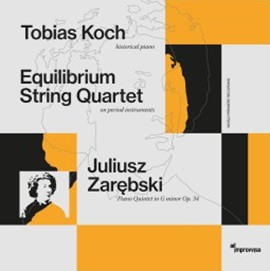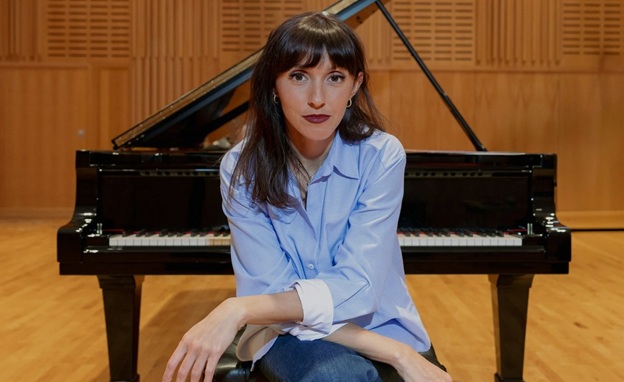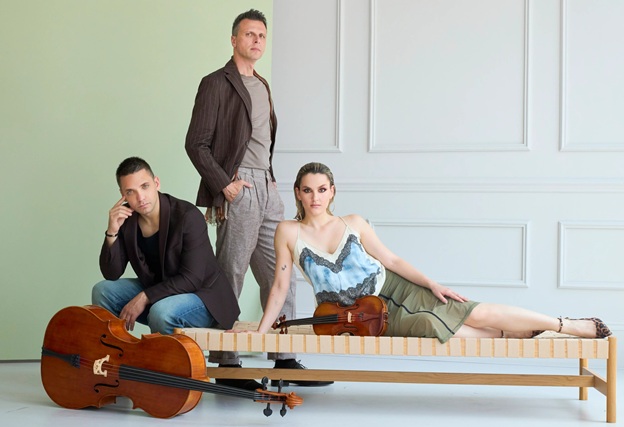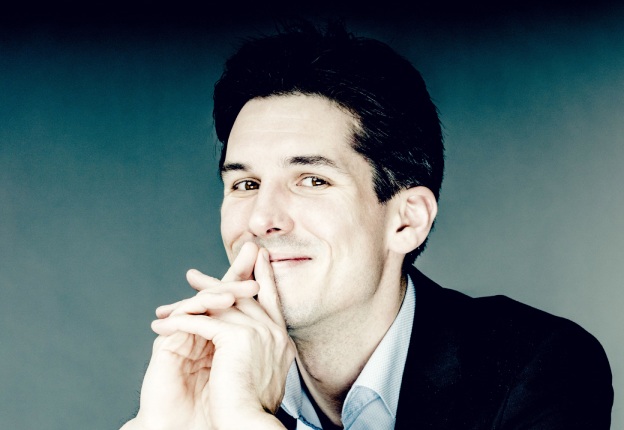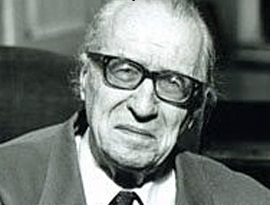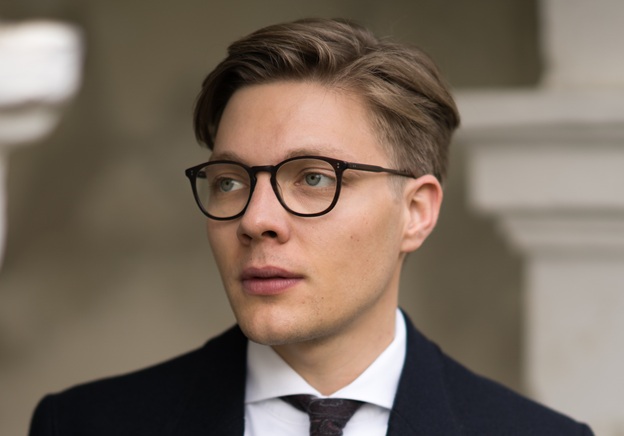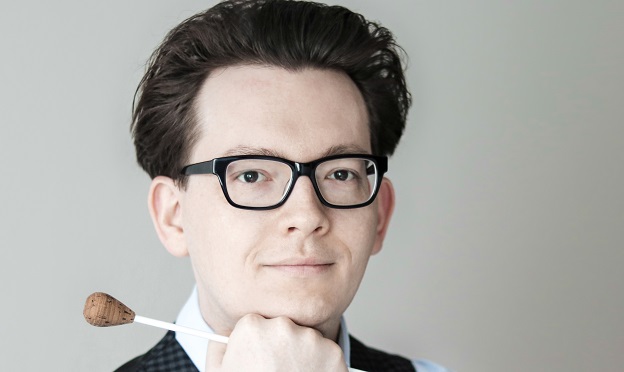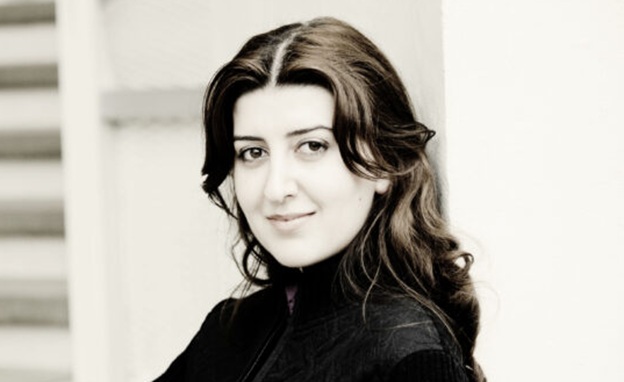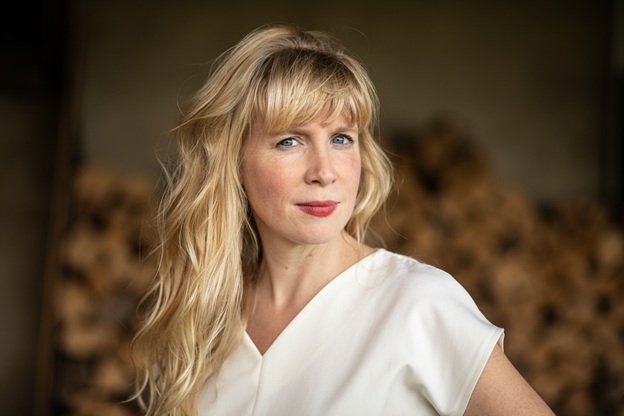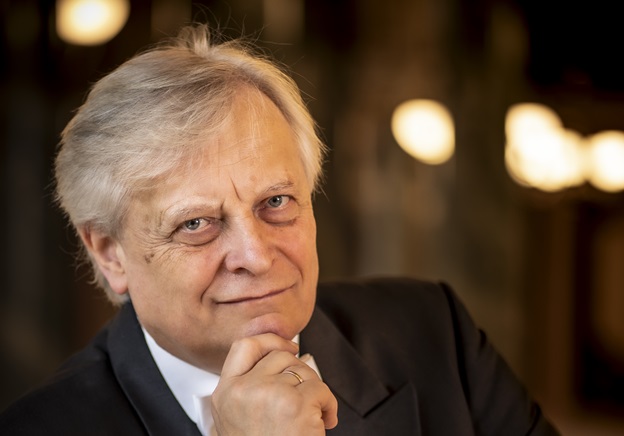Many pianists playing Kapustin come from the classical music. You are trained as a multi-style pianist. Is your connection with jazz a plus for playing Kapustin?
Without a doubt. I grew up listening to jazz from a very young age and having an awareness of the style is so important. Thanks to my mum who is also a musician, I literally watched jazz musicians perform in my living room most weekends! The jazz idioms that Kapustin uses across his composition all need to be truly felt. I wouldn’t have such a strong connection to his compositions if it wasn’t for the exposure I’ve had to jazz. Read More →
Your trio exists since 2022. Where are the origins?
We are all colleagues at the Faculty of Music in Belgrade and have known each other for many years. The idea to form a piano trio came quite naturally – out of mutual respect, artistic curiosity, and a shared desire to create something lasting and meaningful together. Read More →
Das Ensemble BachWerkVokal besteht nun seit 10 Jahren. Wie kam es zur Gründung?
Ich kam nach Salzburg und habe die Stadt mit ihren vielschichtigen kulturellen Vibes sehr schnell und intensiv wahrgenommen. Mir kam die Idee, ein Ensemble mit Bach als künstlerischem Bezugspunkt zu gründen. In Salzburg lernt man sehr schnell sehr viele gute Musikerinnen und Musiker kennen – die Stadt ist nicht groß, aber gleichzeitig sehr international. Kurzum: Das Ensemble BachWerkVokal war geboren. Nachgedacht habe ich damals überhaupt nicht, was ich da anstoße – und das war gut so. Es wurde gleich eine ganze Saison geplant, realisiert, und es war ein Senkrechtstart. Read More →
Where do you see your father in today’s musical world?
I have noticed, with some saddened astonishment, that my father’s name is hardly ever mentioned in the French music press as one of the most important French composers of the 20th century.
Yet he was the most widely performed living French composer in the world and, judging by the feedback I get from his publishers and Sacem, the importance of programming his works worldwide has not diminished since. Read More →
Frau Szalwinska, Sie sind eine klassisch ausgebildete Pianistin, haben aber vor über 20 Jahren die Musik Astor Piazzollas, also des Tangos entdeckt. Eine Musik, die Sie bis heute nicht losgelassen hat. Was war denn der Auslöser?
Schuld daran war die Fernsehübertragung der königlichen Hochzeit von Maxima und Willem-Alexander in Amsterdam im Februar 2002. Als beide die Ringe tauschten, wurde Piazzollas Tango Adios Nonino gespielt. Diese Musik hat mich so fasziniert, dass ich sofort begonnen habe, Recherchen anzustellen, mir Partituren anzuschaffen und mich in die wunderbare Musik Piazzollas regelrecht hineinzuknien. Es wurde zu einer Liebe, die mich bis heute nicht losgelassen hat. Read More →
Herr Mühlbacher, mit 30 Jahren können Sie bereits auf eine lange Karriere zurückblicken, die als Sängerknabe begonnen hat und Sie momentan zu einem der gefragtesten Countertenören unserer Zeit macht. Wurde Ihre Wahl zum Fach des Countertenors von Ihrer Stimme begründet oder wie kam es dazu?
Ich habe schon als Kind ständig gesungen. Da meine Eltern bemerkten, dass ich eine sehr laute, aber auch hohe und schöne Stimme hatte, durfte ich bei den St. Florianer Sängerknaben vorsingen und wurde dort aufgenommen. Das Singen im Chor und bald auch als Sopransolist hat mir ungemein Spaß gemacht. Als ich in den Stimmbruch kam, hatte ich große Angst, meine helle Stimme zu verlieren. So habe ich dann sehr viel geübt und daran gearbeitet, meine Knabensopranstimme zu erhalten. Der Weg in Richtung Countertenor war damit ganz natürlich vorgezeichnet. Read More →
Mateusz, as a German-Polish conductor you have roots in two important musical countries. Where do you belong to, musically?
The question of my musical identity is a very complex one. I was born and raised in Germany. As a conductor, my years as Marek Janowski’s assistant naturally had a profound influence on me through “his” repertoire – that is, Schumann, Brahms, Bruckner, Wagner, and Strauss. But perhaps that is also precisely why I am extremely happy that some time ago I was able to study Polish music very intensively as part of my PhD at the Krzysztof Penderecki Academy of Music in Cracow. Read More →
Frau Arghamanyan, Ihr aktuelles Album Femmes de Légende ist Ihr erstes Album nach einer längeren Veröffentlichungspause. Zwar hatten Sie zwischenzeitlich rein digitale Alben im Streaming herausgebracht, aber seit Ihrem Album mit dem Klavierkonzert in Es-Dur von Franz Danzi im Jahr 2018 hat es auf einem namhaften Label kein Album mehr von Ihnen gegeben. Wie kam es zu dieser Pause?
Das ist ganz klar, COVID hat die klassische Musikszene total erschüttert, und natürlich war auch ich davon betroffen. Stellen Sie sich vor, dass auf einen Schlag plötzlich über mehr als 18 Monate alle Konzerte abgesagt waren… Read More →
On your recently released Schubert album, you have combined his Sonata D 664 in A major and his Sonata D 960 in B flat major with six Ländler and six waltzes from different creative and life phases of the composer. What was the reason for this unusual selection?
Firstly, I attach great importance to ensuring that the pieces on an album are not just thrown together. On this album, the so-called ‘Little A major’, my favourite of the early sonatas, is juxtaposed with the late ‘B flat major’ sonata – ‘Schöne Müllerin’ here, ‘Winterreise’ there. The dance suite consists of marvelous miniatures, each one a small poetic universe, yet they are all coordinated and tonally related. Read More →
Warum war es Ihnen wichtig, zum 200. Geburtstag von Johann Strauss (Sohn) eine Stimme aus Dresden im Gratulationschorus hinzuzufügen?
Die Beschäftigung mit Johann Strauss (Sohn) erstreckt sich bei uns über viele Jahre. Eine erste CD-Aufnahme entstand im Jahr 2000 im Zusammenhang mit einer Initiative zur Erhaltung eines historischen Festsaals in Dresden: « Walzer und Polkas aus dem Palais im Großen Garten zu Dresden ». Read More →




